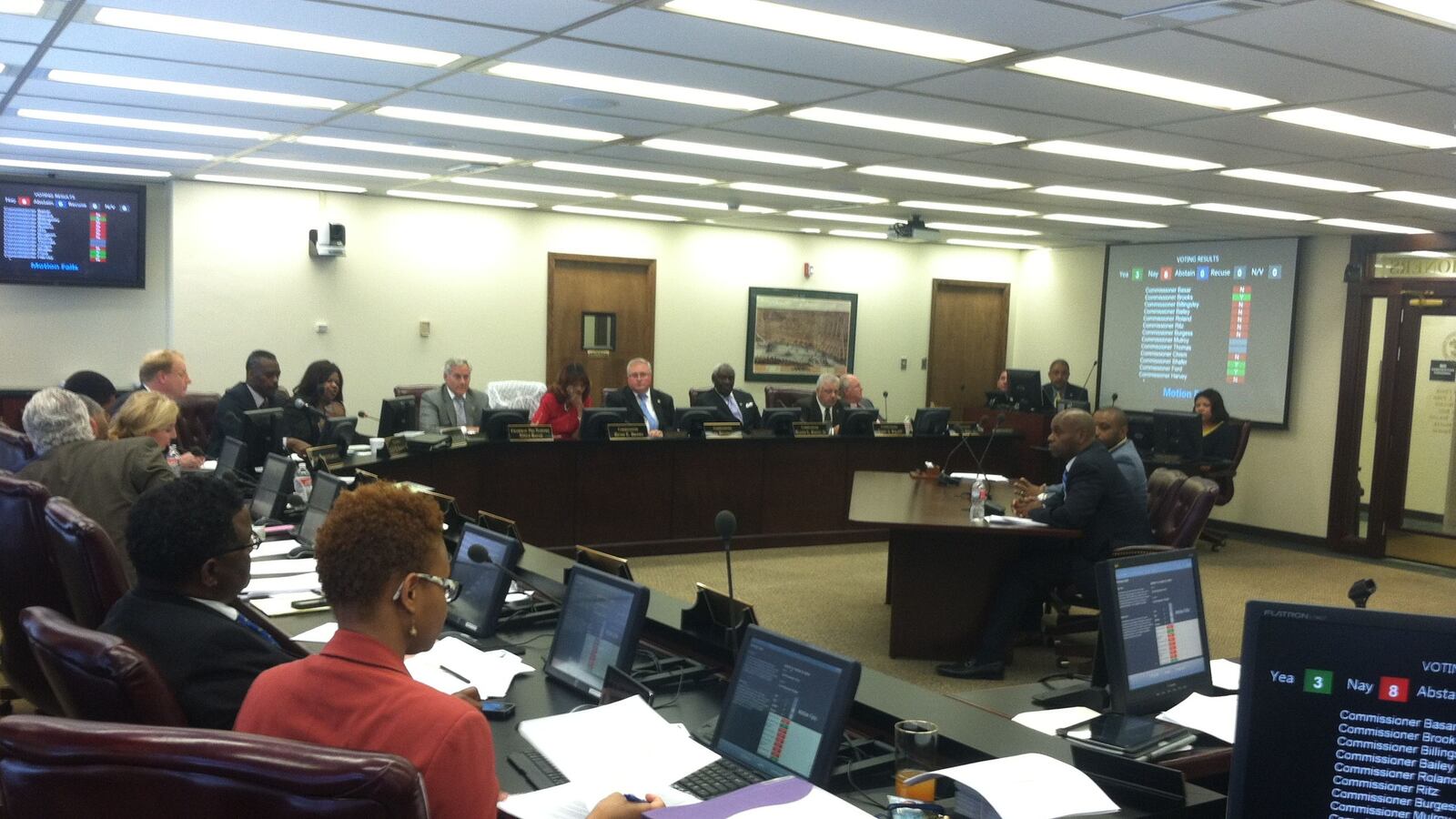Shelby County commissioners who voted last week to spend $3 million on expanding prekindergarten access are finding that they don’t control where the money will go.
That’s because when the commission earmarked the funds not directly to Shelby County Schools but to a tiny local foundation, some members were unwittingly funneling funds to a group that has strong ties to the suburban districts that have left SCS. Shelby County Schools Education Foundation’s plans for the funds — which amount to 30 times what it has typically given to schools annually — are unclear.
Mayor Mark Luttrell will meet with the foundation tomorrow to plan out how the program will be administered.
Commissioners say funneling the funds through the foundation was politically expedient, and it’s not at all clear whether any suburban districts will apply for the funds.
But the prospect of the six suburban districts, whose students are far less needy on average than Shelby County Schools’ students, getting access to pre-K funding did not come up during the commission’s debate last week, which focused instead on whether SCS could be trusted to spend the money only on pre-K.
Terry Roland, a commissioner who represents a largely suburban district, said he had proposed earmarking the funds to the foundation rather than the district explicitly because he wanted the new suburban districts to have a crack at expanding pre-K, too. He also said he intentionally didn’t mention that during the meeting, because he knew some of his colleagues would object.
“That’s politics,” he told Chalkbeat Tennessee.
Roland said some municipal districts — including Germantown and Collierville — run pre-K programs and would potentially be interested in some of the funds. A third municipal district, Bartlett, has two fully enrolled pre-K classes already, but would not look for more funding until next year.
But commissioner Heidi Shafer said last week that suburban districts do not want to expand pre-K offerings. And Mike Ritz, a commissioner from suburban Germantown, told Chalkbeat that he doubted suburban districts would try to secure much of the pre-K funding. Lakeland has said it is not interested and the other districts have not yet responded to Chalkbeat messages.
Ritz said he thought the commission steered the funds to the foundation simply because too few commissioners in attendance would have voted last week to send the dollars straight to Shelby County Schools.
Even Luttrell said he doesn’t know exactly where the pre-K money will wind up being used.
“The foundation will be responsible for really coming up with the framework for prekindergarten programs and we don’t know exactly how that will be done,” he said. “It stands to reason that Shelby County Schools, being the largest school system, will receive a significant amount of it, but we really don’t know how much at this time.”
That leaves a lot up to a foundation that has little track record of supporting Memphis schools, which enroll the highest-need students in the area.
Instead, the foundation’s past allegiance has been with the suburbs. Its office is located in Bartlett, one of the six municipalities that left SCS, and its website says clearly that its mission is to support “suburban and unincorporated areas … outside the municipal limits of the city of Memphis.” Its Facebook page — where photographs feature overwhelmingly white faces, even though more than half of Shelby County residents are black — recently highlighted the foundation’s gift to an elementary school in suburban Collierville.
Director Diane Polly said the website had not been updated to reflect the foundation’s post-merger mission. “Our mission will be to serve all public schools in the county,” she said. “That will include charters, achievement, and municipalities, everybody, public school education.”
The foundation, which Luttrell said played an important role in planning for the merger last year, will take $50,000 of the $3 million to support its own costs.
Representatives from Shelby County Schools released a statement after the commission meeting last week saying that the district would spend the money it receives on expanding pre-K for children with high need. The day after the decision, they were already poring over maps to decide which high-need areas would get the classes, according to the Commercial Appeal.
But Polly declined to comment on the foundation’s plans for the pre-K funds, including whether the foundation would prioritize programs that serve high-need students, until after the meeting tomorrow with Luttrell.
Steve Mulroy, a commissioner from the city of Memphis who has been a leading champion of boosting pre-K funding, said he would be disappointed in Luttrell if suburban districts wind up claiming a chunk of Shelby County’s pre-K funds.
“It will erode the county commission’s trust in the administration and that trust is already at a low point to begin with,” he said.
But even Mulroy said he voted to funnel the funds through the foundation because he saw doing so as Shelby County’s best shot at moving forward with a funding priority that hit a major roadblock last year, when voters rejected a referendum that would have paid for expanding pre-K.
“I figured a bird in the hand is worth two in the bush,” Mulroy said. “At the end of the day, as long as the lion’s share goes to Shelby County Schools it’s better than what we originally had — which was nothing.”

